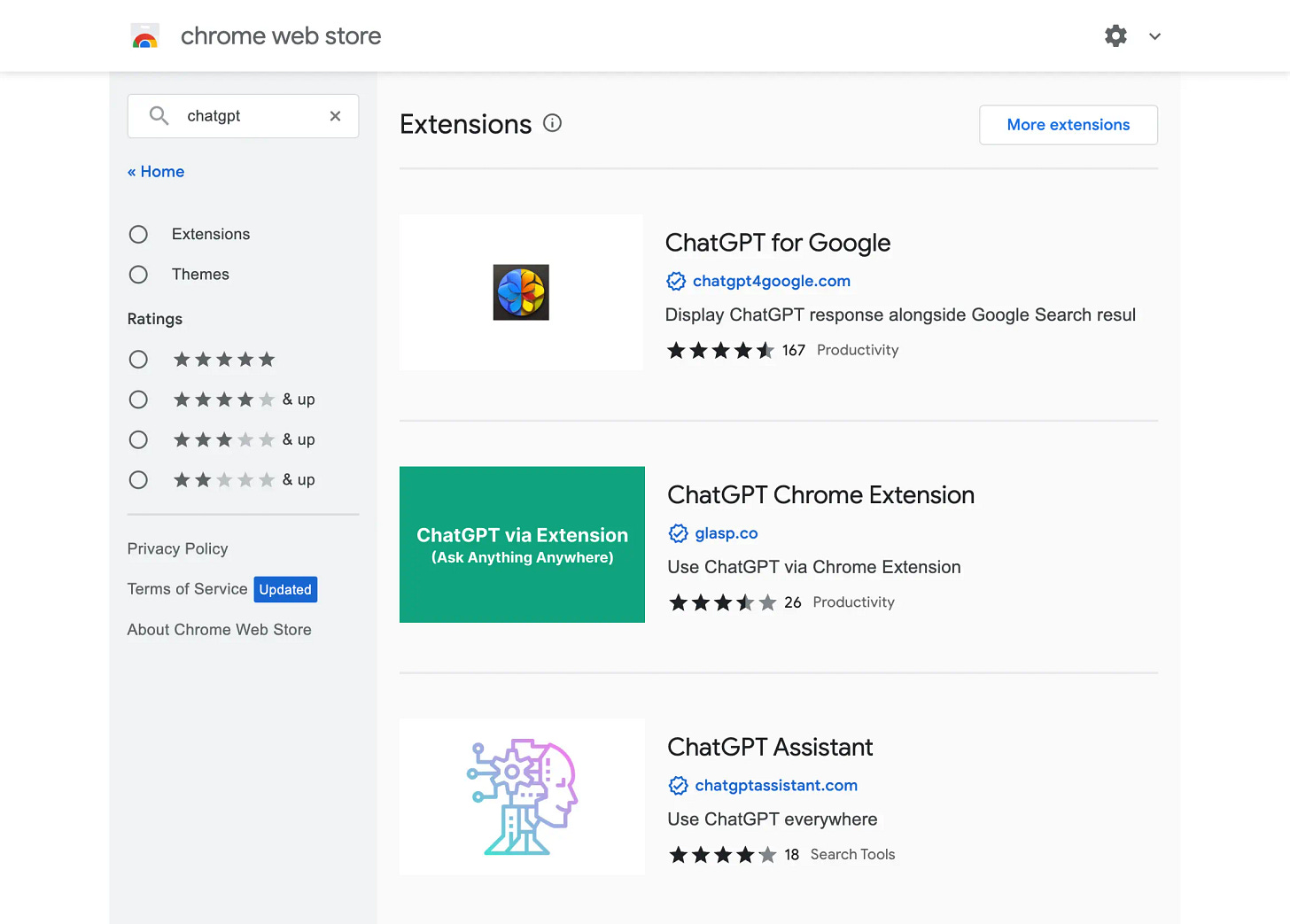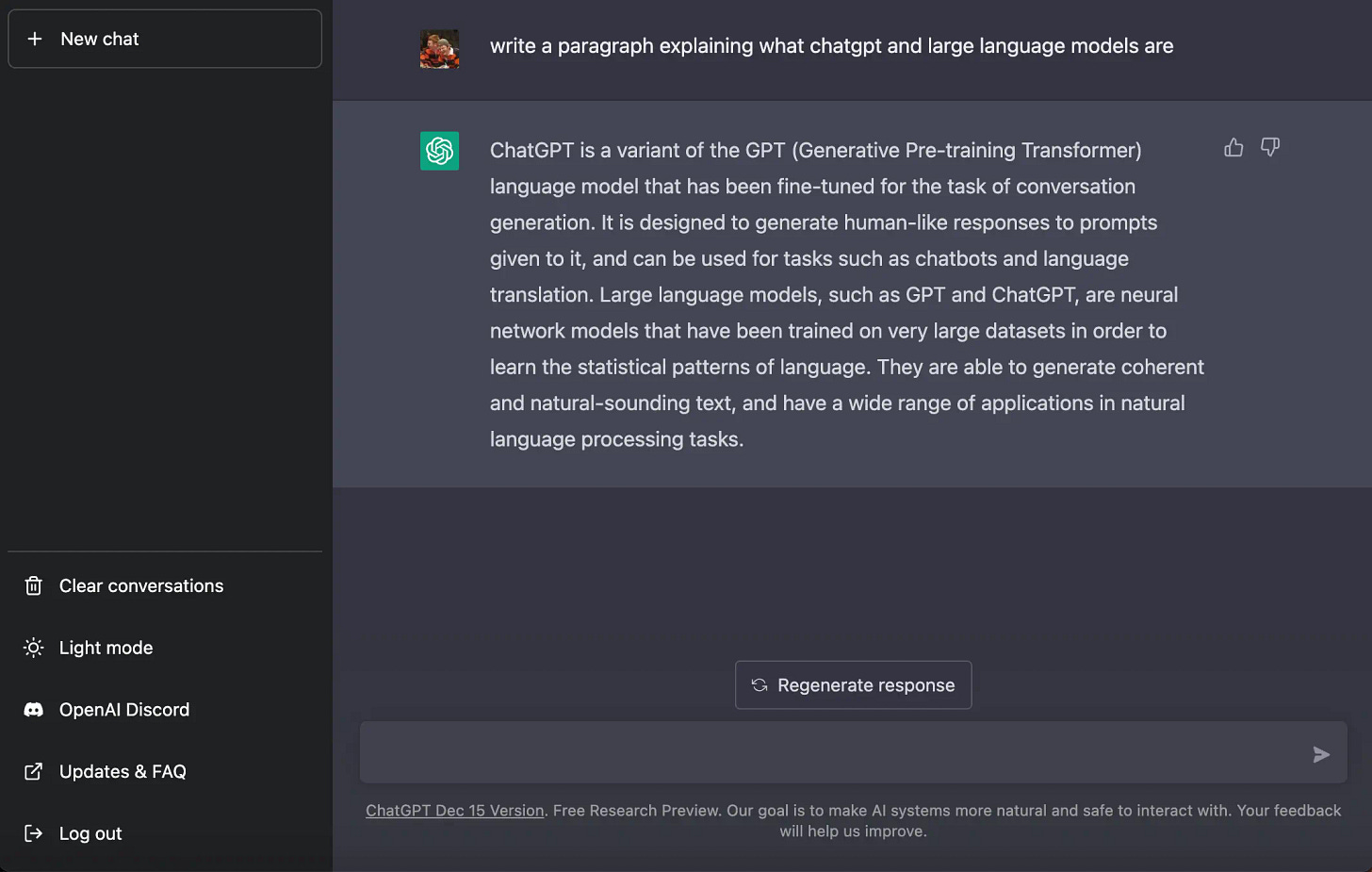The Cambrian Explosion of ChatGPT Browser Extensions
A perfect pairing with browser extensions and OpenAI's permissive stance enabled a gold rush, and it feels like we've only just begun.
One month ago, there were zero results for "ChatGPT" on the Chrome Web Store. This morning, there were nearly 250, and I expect this number to triple in the coming month. This explosion of growth underscores the sheer utility of ChatGPT, and we have only just begun to explore its myriad applications as a layer on top of web browsers.
Chrome Web Store ChatGPT search results
ChatGPT is a variant of the GPT (Generative Pre-training Transformer) language model that has been fine-tuned for the task of conversation generation. It is designed to generate human-like responses to prompts given to it, and can be used for tasks such as chatbots and language translation. Large language models, such as GPT and ChatGPT, are neural network models that have been trained on very large datasets in order to learn the statistical patterns of language. They are able to generate coherent and natural-sounding text, and have a wide range of applications in natural language processing tasks.
ChatGPT generating the previous paragraph
ChatGPT's meteoric ascent can be attributed to a handful of factors:
A profound leap in sophistication from GPT3, especially the ability to understand very large input prompts
Free to use
A simple textual I/O interface - allowing for easy sharing, replication, and modification of LLM prompts
Allowing for unofficial API development and embedding
OpenAI is brazenly encouraging developers to hack on the ChatGPT platform in order to unlock its full potential.
Unofficial API implementations such as npm's chatgpt-api or pip's revChatGPT enabled thousands of developers to experiment with this amazing and novel tool. Furthermore, ChatGPT be embedded inside an iframe, allowing for browser extensions to place their chat interface directly inside the extension.
This was not by accident: OpenAI did not have to allow these things. It would have been trivial to lock down their API and add an X-Frame-Options header to choke off these unsanctioned uses. Since launch, they have taken steps to regulate the automated use of the unofficial API, but it very clear that OpenAI is brazenly encouraging developers to hack on the ChatGPT platform in order to unlock its full potential.
Browser extensions have found a particularly nice pairing with ChatGPT. The WebExtensions API includes an array of tools for marshaling text in an out of web pages, and OpenAI's permissive API allows for extensions to spoof the authenticated session and dispatch prompts directly to ChatGPT. This leads to an interesting new pattern where desktop ChatGPT users now always have a ChatGPT tab open, but multiple pieces of software are using that tab as a mouthpiece.
In the month since launch, ChatGPT has been used to build extensions for adding widgets on search engines, analyzing and writing emails, composing code and browser scripts, scraping and extracting formatted data from pages, summarizing articles, and composing posts for Twitter and LinkedIn. It's difficult to ignore the fact that Microsoft's recent announcement that it will incorporate ChatGPT into Bing directly mirrors the most widely installed ChatGPT Chrome extension ChatGPT for Google.
Though browser extensions have never been able to gain the dominace enjoyed by mobile apps, they still enjoy a healthy ecosystem: the Chrome Web Store features 180,000 extensions (compared to the Apple App Store's 1.8M). Over the past decade, mobile devices subsumed a large chunk of desktop traffic and users, yet the mobile form factor cannot hope to compete with the desktop format as a tool for everyday work and text composition - a domain where browser extensions and ChatGPT shine.





